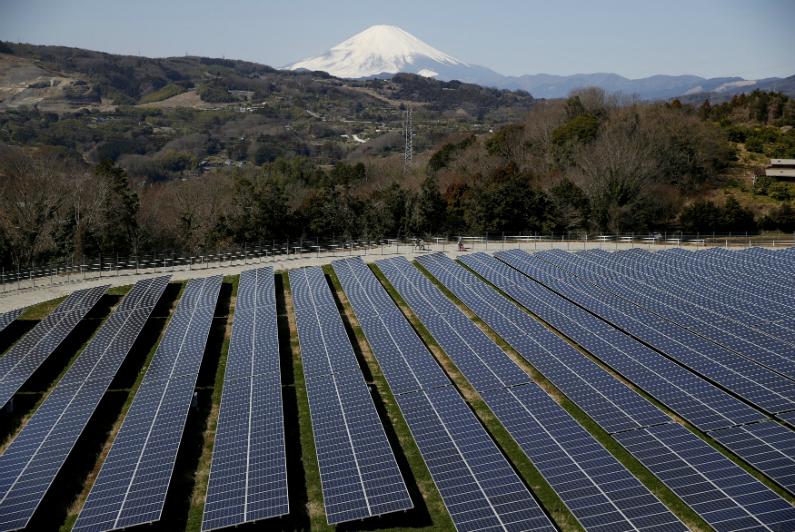TOKYO—The Japanese government is threatening to cut existing solar power project subsidies angering the power producers and investors that say the cuts will undermine their profitability and violate earlier agreements.
The Ministry of Economy, Trade, and Industry (METI) last month proposed that companies granted permits for solar projects between the fiscal years of 2012 to 2014 under so-called Feed-In-Tariffs that guarantee minimum power prices submit applications by March 2019 to connect to the grid.





